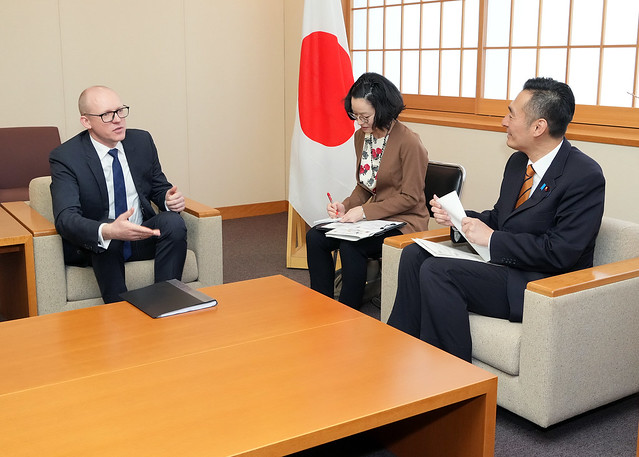On 4 March 2024, in Tokyo, Japan, the State Secretary of the Ministry of Foreign Affairs, Andris Pelšs, participated in the fourth political consultations between the Ministries of Foreign Affairs of the Baltic States and Japan at which the partners exchanged views on the security situation in Europe and the Indo-Pacific region as well as exploring possibilities for expanding cooperation both in the economic sectors and on security matters.
The Baltic States and Japan are bound by a similar understanding of democracy, human rights and the rules-based international order that underpins the successful operation of the format.
“Like-minded countries must work together to restrict the threat posed by Russia to international security,” Andris Pelšs underlined. At the meeting, the State Secretary also thanked Japan for its support to Ukraine.
The officials acknowledged the growing importance of the political dialogue between the Baltic States and Japan, noting its particular relevance in the context of an increasing cooperation between Russia and China. The diplomats committed themselves to continuing their cooperation in this format.
During his visit, Andris Pelšs met with the Parliamentary Vice-Minister for Foreign Affairs at the Ministry of Foreign Affairs of Japan, Yoichi Fukazawa.
Various bilateral cooperation issues were discussed at the meeting, including strategic communications and economy. Given the positive experience of Japanese investors in Latvia, the State Secretary invited Japan to expand its investments in energy, infrastructure and the banking sector.
As part of his stay, the State Secretary also intends to meet with the Parliamentary Vice-Minister for Defense at the Ministry of Defense of Japan, Shingo Miyake, and the Senior Fellow at the Japan Institute of International Affairs, Tetsuo Kotani.
The State Secretary will also meet with Latvian businesses taking part in the FoodEx 2024 trade show held in Tokyo this week.
Background information
The political dialogue between the Baltic States and Japan was established in 2018 at the initiative of the former Japanese Prime Minister, Shinzo Abe. The first meeting took place in Vilnius in 2018, the second, in Riga in 2019, and the third, in Tallinn in 2022.





